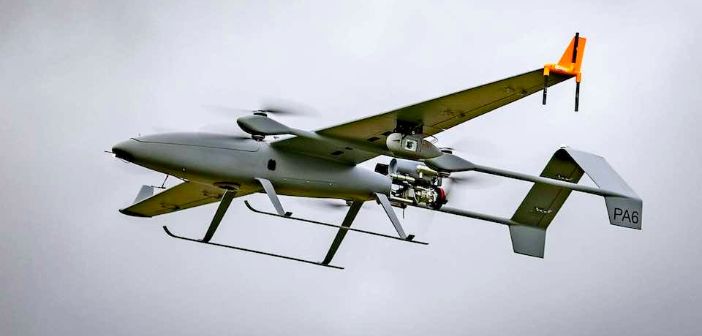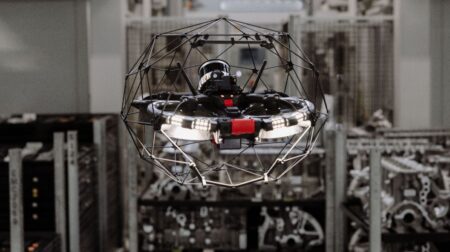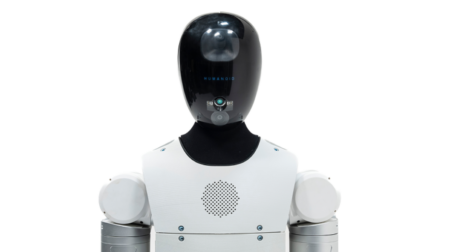The Royal Air Force (RAF) has completed its first successful drone flight using an alternative to fossil fuel, as it works to reduce its carbon footprint.
Under Project Vermeer, the RAF aims to use sustainable aviation fuel and has now flown a four-meter-long fixed-wing drone with synthetic kerosene.
The fuel is entirely fossil fuel-free and is made by mixing raw materials with high sugar levels, such as food waste, with bacteria to create an oil substance. This is then converted into aviation fuel using chemicals and heat.
As the process does not require large-scale infrastructure, synthetic kerosene can be made anywhere, making it an attractive option for military deployments around the world, the RAF said.
These latest trials, completed in partnership with the US Navy and British company C3 Biotechnologies, created 15 litres of synthetic fuel in laboratory conditions to test the engine. Following successful engine testing, the drone completed a 20-minute test flight in Wiltshire in South West England.
Pioneering success for @RoyalAirForce 👇
✅ First drone flight on synthetic fuel, a greener alternative to fossil fuel
✅ International collaboration with British company @C3BIOTECH and @USNavyResearch 🇬🇧🇺🇸To find out more watch below or read: https://t.co/r0W1ZfGh0Q pic.twitter.com/gxrLRMbqAQ
— Ministry of Defence 🇬🇧 (@DefenceHQ) March 16, 2022
RAF’s air vice marshal, Lincoln Taylor, said: “The RAF needs to ensure that we are at the forefront of technology to safeguard our own resilience and operational capability, whilst minimising our damage to the environment.
“Fuel scarcity and cost will only ever increase in its impact on our operations and synthetic fuels for our aircraft are one potential solution to this situation as we look to secure the objectives of the next generation RAF of tomorrow.”









